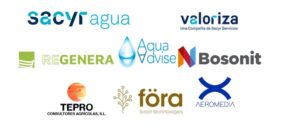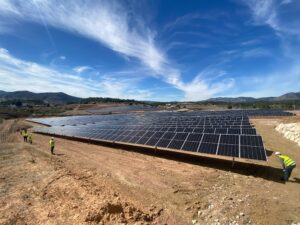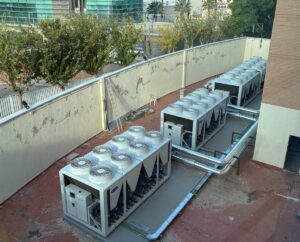GENHESIS
The "Green Hydrogen Enabling Electrolyser and Fuel Cell Technologies as an Energy Vector (GENHESIS)" project is by IDAE within Incentive Programme 4: Basic-Fundamental Research Challenges, Innovative Pilots and Training in Key Enabling Technologies, corresponding to the Incentive Programme for the Innovative Value Chain and Knowledge of Renewable Hydrogen within the framework of the Recovery, Transformation and Resilience Plan.
The objective of the GENHESIS project is to develop an innovative pilot project (TRL5) to validate the applicability of green hydrogen as an energy vector by combining renewable energy sources (photovoltaic) with the efficient storage of surplus energy through new H2 generating systems (electrolysers) and to validate its applicability as an energy vector through fuel cells.
The GENHESIS project will be the first validation in relevant environments at national level of enabling technology for the complete cycle of generation and use of green H2 as an energy vector, achieving a reduction in costs in all the processes and associated technologies that will boost its application as an energy vector, improving the competitiveness of all stakeholders and with potential replication in a large number of productive sectors and in an emerging and expanding sector.

The GENHESIS project focuses on industrial research in different technological areas. The first corresponds to the development of a new AEM electrolyser prototype for green hydrogen generation and its validation in relevant operating environments with renewable energy sources, in particular photovoltaic energy. The second technology area corresponds to the development of a fuel cell for covering the energy demand in reelectrification (power to power) and energy backup applications. Finally, both technologies developed will be integrated and validated in real industrial environments with intermediate H2 storage to ensure continuous and efficient energy supply from intermittent sources such as renewables. Finally, the new systems and technologies developed are based on the use of H2 as a sustainable energy vector, which will reduce the emissions generated by current systems, resulting in a reduction of the tax burden derived from pollutant gas emissions. All this will bring the region and the participating companies closer to the objectives of sustainable development and the transition towards a sustainable economy in accordance with the objectives of the European Union, such as the European Green Deal.
"Project funded by the European Union - Next Generation EU, in the framework of the Incentive Programme 4 call: basic-fundamental research challenges, innovative pilots and the formation of key enabling technologies, within the Recovery, Transformation and Resilience Plan".




